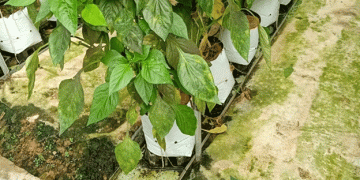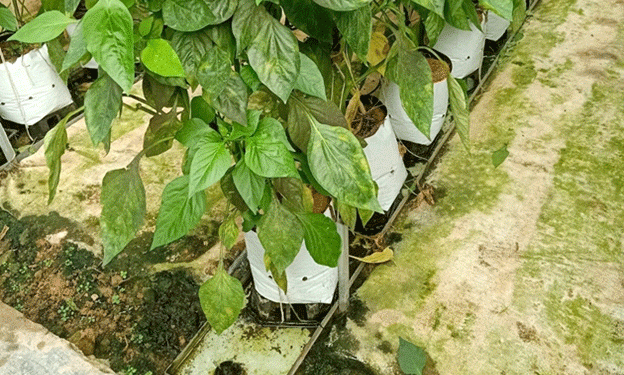Innovative Hydroponic Bell Pepper Cultivation with Wastewater Recycling in Lâm Đồng
In the highlands of Lâm Đồng province, Vietnam, a groundbreaking agricultural practice is taking root. The Thủy Farm Agricultural Service Cooperative, led by Director Nguyễn Như Thủy, has pioneered the collection, sterilization, and reuse of wastewater in hydroponic bell pepper cultivation. This initiative not only enhances water use efficiency but also promotes environmental sustainability.
The Challenge of Water Waste in Hydroponics
Hydroponic farming, while efficient in many respects, often results in significant water runoff. At Thủy Farm, approximately 35% of the water used in irrigation was lost as runoff, leading to both economic and environmental concerns.
Implementing Wastewater Recycling
To address this issue, Thủy Farm collaborated with Dutch partners and Fresh Studio to develop a wastewater recycling system. This system collects runoff water, sterilizes it to remove pathogens, and reintroduces it into the irrigation cycle.
Economic and Environmental Benefits
The results have been remarkable. On a 6-sào (approximately 2,160 square meters) area with 24,000 bell pepper plants, the farm saves about 9-10 cubic meters of water daily. This translates to a 30-35% reduction in water usage and a 50% decrease in nutrient costs. Annually, these savings amount to approximately 600-700 million VND.
Quality and Market Impact
Beyond cost savings, the quality of the bell peppers has improved, leading to increased market demand. Thủy Farm now supplies an average of 5 tons of bell peppers daily, collaborating with eight cooperative members.
Broader Implications and Future Plans
The success at Thủy Farm serves as a model for other agricultural enterprises in Vietnam. By demonstrating the feasibility and benefits of wastewater recycling in hydroponics, this initiative encourages wider adoption of sustainable practices.
The integration of wastewater recycling in hydroponic bell pepper cultivation at Thủy Farm exemplifies the potential of innovative agricultural practices. By reducing water and nutrient waste, improving crop quality, and enhancing economic returns, this approach sets a precedent for sustainable agriculture in Vietnam and beyond.































